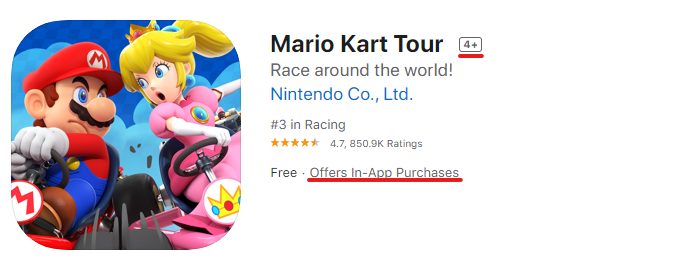On Friday, June 12th, Apple was hit with a class action lawsuit over allowing games with loot boxes on the App Store. Loot boxes can be purchased using real money that can be exchanged for in-game currency, they give players a randomized selection of in-game items like weapons and boosts. Due to the element of players not knowing what they are gonna get when they purchase loot boxes, the lawsuit considers it as gambling.
The class action complaint was filed through the US District Court for the Northern District of California, as reported by Apple Insider. The plaintiff, Rebecca Taylor, alleges that the tech giant has assisted in gambling and addictive behavior, especially in minors.

The plaintiff claims:
“Not unlike Big Tobacco’s “Joe Camel” advertising campaign, Apple relies on creating addictive behaviors in kids to generate huge profits for the Company. Over the last four years Defendant’s App Store games have brought in billions of dollars, even though the vast majority of the games are free to download.”
Loot Boxes
Loot boxes give plays a randomized selection of in-game items upon payment. These items include weapons, armor, and boosts.
The complaint mentions that the plaintiff’s son has spent his parents’ and his own money to purchase loot boxes in Brawl Stars. Ms.Taylor estimates that her son has spent at least $25 using his own money (iTunes gift cards) as well as his parents’ credit cards on loot boxes for the random-chance possibility of winning valuable game items.
Though Apple highlights in-app purchases on the App Store, the description of a game does not state whether it contains loot boxes or not. Apart from Brawl Stars, other mobile games are also mentioned in the lawsuit: FIFA Soccer, Roblox, and Mario Kart Tour.
App Store earnings in Sales
The amount of money Apple generates from in-game purchases is quoted as a devious plan to force players to make online purchases:
“after the game is purchased and downloaded, Apple and the game developer entice the player to make in-game purchases. Apple receives 30% of all of these in-game purchases as well.” that revenue is in addition to the share of the purchase price that Apple receives – 30% – if the developer charges a price for the game itself.
A study on App Store earnings in 2019 published by Cupertino HQ, reveal the lucrative monetary value of m-commerce for the company.
The lawsuit concludes that loot boxes can be considered gambling and Apple is promoting addictive behavior in minors. The class action proposes restitution of the revenues generated via loot boxes and an injunction against further violations by the company.
In recent years, after investigating in-game purchases, several counties have banned loot boxes as it is considered gambling. Major tech companies like Sony and Nintendo also require developers to disclose loot box odds following the the commitment of Epic Games to being transparent about what will be found in loot box crates.
Aside from this lawsuit, Apple is also under Antitrust investigation by EU for Apple Pay and iOS App Store. The investigation will look into the practices of distribution of apps and whether Apple is violating the European Union’s competition rules by having unfair practices that may be sabotaging their competition.
1 comment